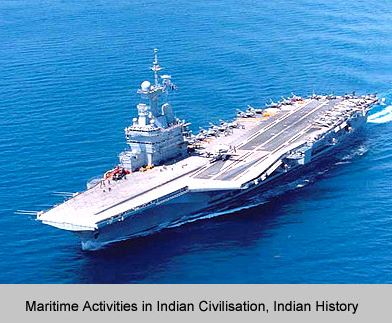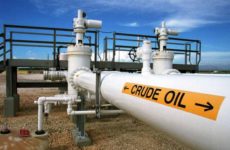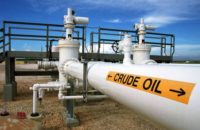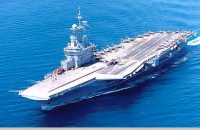
Maritime activities are essential to the world’s economy, as about 90 per cent of the world’s cargo is carried by ships being the most cost-effective way of moving goods around the world.
Nigeria enjoys a larger share in the movement of these cargoes, due to its location along the Gulf of Guinea, which is a transit and strategic route for movement of most cargoes across Africa.
In recent times, the route has witnessed a lot of maritime crimes, which has affected shipping activities around the region, thus, it is imperative that the route is secured to fully harness the benefits of maritime.
Nigeria as a member-state of the International Maritime Organization (IMO), a specialized United Nations (UN) Agency, responsible for ensuring safety and security of shipping and protection of the marine environment, has taken different measures to fight maritime crimes but their efforts yielded little results, as the criminals still find
their ways around maritime environs.
However, in fighting maritime crimes, the Nigerian Navy in collaboration with other Maritime Law Enforcement Agencies have arrested several vessels and persons involved in criminal activities
within the maritime environment.
Some of the cases have been successfully prosecuted, the process of enforcing the law in others have dragged on, seemingly, without conclusion.
Daily Sun learnt that some arrested vessels have been in the custody of Navy for over 10 years, which drains the Navy logistic and financial resources for maintenance.
Last year, the Vice President Yemi Osinbanjo, at the National Defence College (NDC), Abuja confirmed that the activities of the criminals on Nigeria’s maritime environment are a threat to both national economy
and security.
He said the sea has great importance for trade and movement of goods and services, adding that the threat on maritime security and sabotage of national maritime infrastructure, crude oil theft, illegal oil bunkery, piracy, armed robbery at sea and environmental degradation has to be treated as an existential threat.
For Nigeria not to be classified totally among high-risk countries in doing international maritime business, there is need for concerted effort from both government and private sector to tackle the menace.
Speaking last week at the 2018 World Maritime Day celebration tagged IMO 70: Our Heritage, Better Shipping For the Better Future” held in Lagos, the Secretary to the Government of the Federation (SGF), Boss Mustapha, said the nation’s maritime industry should be protected from criminals to attract foreign investors and also preserve Nigeria‘s
territorial integrity.
Mustapha, represented by the Minister of State for Power, Works and Housing, Mustapha Baba Shehuri said insecurity and maritime crime on the nation’s territorial waters have eroded the gains of the port concessioning, dredging and amnesty embarked upon by the government.
According to him, the development has forced shipping companies to seek government’s approval to enter Nigeria territorial waters with onboard-armed security men.
He said: “The maritime industry in Nigeria and globally has come under siege by criminal elements who orchestrate acts of piracy, sea robbery, arms proliferation, crude oil theft, terrorism, migration, illegal and unregulated fishing and oil theft in the Gulf of Guinea and within Nigeria’s territorial waters. Maritime crime is an
organised one with elements all over the world.
We must therefore drum up the need for regional and sub-regional collaboration for integrated maritime security strategies in addressing the challenges of insecurity.
“The maritime domain is vulnerable and ensuring its security is certainly beyond the capacity of one country or any existing regional body acting alone.
Thankfully, the government is not taking the issue of safety and security in the Maritime sector lightly. Like the proverbial goose that lays the golden egg, the maritime industry must be protected to attract foreign investors and also preserve Nigeria‘s territorial integrity.”
Also speaking, Minister of Transportation, Rotimi Amaechi, who was represented by the Permanent Secretary, Federal Ministry of Transportation, Alhaji Sabi’u Zakari, said that for effective contribution of shipping activities to the development of Nigeria’s economy, there is urgent need to curb and combat these illegal maritime activities in Nigerian waters as these crimes continue to constitute impediments to economic development.
He added: “The importance of ensuring a safe maritime domain cannot be over-emphasised.
A safe, secure and efficient shipping industry will surely revitalize and diversify the economy of Nigeria away from crude oil exploration to a maritime hub.
Therefore, the promotion of sustainable shipping and sustainable maritime development as expressed in the theme of this year’s celebration will stimulate the development of new technologies and innovation, agile maritime security platforms and the development of the maritime infrastructure.
“The Federal Executive Council (FEC) recently approved the procurement of new security architecture for the Nigerian Maritime Administration and Safety Agency (NIMASA), which involves the acquisition of new platforms and other logistics required to enable the Agency perform its statutory functions of securing the Nigerian waters in conjunction with the Nigerian Navy,” he added.
He said with a coastline of 852 kilometres bordering the Atlantic Ocean in the Gulf of Guinea and a maritime area of over 46,000 km, Nigeria is no doubt a maritime destination.
According to him, available statistics show a total freight cost estimate of between $5 billion and $6 billion annually, while the maritime component of Nigeria’s oil and gas industry is worth an estimated $8 billion alongside seabome transportation, oceanic extraction resource exploitation and export processing zones.
The Director-General of NIMASA, Dr Dakuku Peterside, said the agency would continue to collaborate with all relevant government agencies within and outside the country to ensure safe and secure maritime domain of the country and the Gulf of Guinea.
He said NIMASA has mapped out some pillars in the view of restructuring the agency such as: survey inspection, environment security and emergency centralisation initiative, digital strategy reforms and capacity building initiative.
He said that the agency’s efforts had yielded tremendous results with programmes in the maritime sector, adding that the maritime activities had taken place in Nigeria in 2018, which would extend till 2019.
The NIMASA boss said that with the support of the Federal Ministry of Transportation, the agency had been able to push the Catobage Law, which he said, would be passed into law before the end of 2018.
Story by Steve Agbota – The Sun Newspaper

















Comments